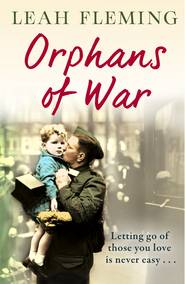По всем вопросам обращайтесь на: info@litportal.ru
(©) 2003-2024.
✖
Remembrance Day
Настройки чтения
Размер шрифта
Высота строк
Поля
‘Funnily enough, I’m quiet. It’s too braw a day to be sick and I’ve sewn up all the cut fingers at haytiming, but if it stays this hot, the old folk’ll peg out if they’re daft enough to go walking midday.’
‘Yes, quite,’ Hester sighed. Would the fool ever go? ‘Goodbye, Doctor.’ She waved him away, then pulled down the window blinds to stop the sunlight shining on Angus’s face. ‘Ask Shorrocks to organise a bath, Guy—it’ll ease out any stiffness—and I’ll get Cook to send you up a coddled egg and soldiers.’
‘Mother, don’t fuss, I’m fine…Angus was just showing off as usual. He can be such a chump.’
‘I turn my back for five minutes and you get up to mischief again.’
‘We’re not babies. It was so hot and we just fancied a swim.’
‘What were those village brats doing on my land?’
‘You know everyone plays in the Foss when it’s warm. It’s tradition.’
‘Not while we’re in residence for the summer, they don’t. I shall speak to the Parish Council.’
‘Oh, Mother, the Bartleys saved Gus’s life. You ought to be singing their praises, not punishing them. I told them you would be grateful,’ Guy argued. He always stood his ground, just like his father. What a fine soldier he would make one day, she thought, but she must be firm.
‘Sometimes, Guy, you overstep the mark…Over-familiarity with the lower orders breeds contempt and disobedience. Playing cricket against the village is one thing, but cavorting in front of locals is another. It is your duty to set an example, not make promises on my behalf. Ask Arkie to have tea sent up here. I’ll sit and watch over Angus, just in case…He really ought to be in hospital.’
‘I wish Father was here. He promised to be home for the hols.’
‘The army needs him. There’s talk of war with Germany. The situation demands all the staff officers to be making contingency plans. We mustn’t worry him now about such folly. Run along. Have a warm bath, you’re shivering in that indecent bathing suit.’
Hester needed to be alone. Angus looked so fragile and battered, poor darling. Nothing must harm either of her precious sons, her golden eggs. They were so late coming into her life. At nearly forty she had feared she was barren and then they came together one terrible night when all her dignity was abandoned in the struggle to bring them into the world. Guy Arthur Charles came first, all of a rush, and then the shock when another baby emerged, Garth Angus Charles, taking his time. Two for the pain of one, her beautiful boys, alike in every way. In one night her world was changed for ever and she loved them both with a devotion that knew no bounds.
Looking round at the mess in Angus’s bedroom—cricket bats and fishing rods, horse crops, rugby shoes, clothes scattered on the floor—she sighed. He was such an energetic boy, full of pranks and madcap ideas. He was a skilled horseman, winning rosettes to prove his competitive spirit. On the wall were stag antlers, model ships and biplanes, and a map tracing Colonel Charles’s campaigns in South Africa. The twins were as bad as each other when they were home. At school it was another matter. They were put in different houses, beaten for any misdemeanours but excelled on the sports field and in the Officers’ Training Corps.
It was always so quiet when they were away. That was why she’d begged Charles to let her buy Waterloo House, so she could be close for their exeats and any public concerts at Sharland School, the great stone fortress that stood on the edge of the moor.
To think that life could have ended for one of them this beautiful afternoon didn’t bear thinking about. Horse treks and camping out over the Dales would be out of bounds for the rest of the holidays after this escapade. Now she must be gracious and receive their rescuers, but of all the children to save Angus why did it have to be the blacksmith’s brood of non-conformists?
Only last week she was in her carriage doing a round of charitable visiting when she chanced to see the blacksmith striding along the cobbled narrow street in his leather apron, shirtsleeves rolled up, showing muscled arms the colour of walnut oil. His black curly hair was far too long under his cap, more like a gypsy’s locks. She looked down at him from her carriage, expecting him to doff his cap in deference but he swaggered on as if she was nobody of consequence.
‘Stop the carriage!’ she ordered Beaven. ‘Go and ask that man why he has been so rude.’
‘Yes, ma’am,’ said her coachman, pulling up until Bartley was alongside them.‘Hey,you, why didn’t you pay the usual respect to her ladyship?’
‘Oh, aye,’ said Asa Bartley, looking straight at her with those coal-black eyes. ‘You tell your mistress I bows to no man but my Maker, and that’s a fact!’
Hester flushed at such insolence and demanded that Beaven drive on. The blacksmith might own his business but he rented his cottage from the Waterloo estate. How dare he be so rude?
Men like him didn’t know their place. These chapel ranters were behind all the stirrings of unrest in England: the Labour Movement and trade unions, socialist ideas of all being equal, women wanting to register for the Vote and such like. The Women’s Suffrage Society had the cheek to send wagons round the villages canvassing for support from Sharland’s millworkers, encouraging them to strike for better wages. She blamed all the unrest on the preachers in the pulpits of these stone chapels, giving workmen ideas above their station.
‘God bless the squire and his relations, And keep us in our proper stations,’ went the verse of a hymn. That was how society worked. How could any army survive without discipline and rank? Rank first and foremost. Orders must be given and obeyed, that was the key to social cohesion. Charles’s generals and his staff knew how to plan battles, and their foot soldiers, under officers, must carry out the orders without question. It was always thus.
Bartley had insulted her rank and class by his insolence and now she must forbear this insult to show Christian fortitude to stomach making conversation with his children. But one thing was certain. No child of his would ever be employed on the estate. Dissenters’ children had too much spirit to be knocked back, asked too many questions. They were difficult foals to break in. Their kind were best ignored and kept a bay: a different tribe, and long may that continue.
Angus seemed comfortable enough so she gathered up some of the mess on the floor. What must the doctor have thought of the clutter—that she was slack with her servants? The eye of the mistress was worth two of her hands, she mused. Arkie must make sure the room was more presentable for his next visit. She didn’t want any tittle-tattling to his silly wife.
Hester caught a glimpse of herself in the dressing mirror. She’d never been an oil painting: tall, on the gaunt side of slender, but well corseted to give a robust shape and bolstered bosom like her heroine, the new Queen Mary. Her thin cream dress was a little frivolous for a Board of Workhouse Guardians meeting but the weather was so hot. That was the trouble with country living, you had to be so careful to set a suitable standard.
A military wife knew how to dress appropriately, to impress junior officers’ wives as to what they must aspire. There were formal school visits to endure, dressing discreetly with nothing to cause the boys embarrassment, especially being such an older parent: no fancy jewellery or lavish trimmings on her picture hats. The risk of under—or overdressing in such a backwater was a balancing act she found quite within her grasp. If she stuck to muted colours: mauve, taupe, eau-de-Nil, stone and her beloved silver grey for her palette, her spirits rose. Afternoon and tea gowns, skirts blended with tweed and dull plaids, furs and country tweeds were what she ordered from her dressmaker in London. Silk and wool, cotton lawns and simple lace trim distinguished her as top drawer at a glance.
Yorkshire might have smoke and soot but the best woollen cloth in the world was just over the hills in Leeds and Bradford. She felt dignified in such quiet shades. Colour was for the young fry and dress uniforms. She was a colonel’s lady, daughter of an earl, albeit the youngest of many sisters, well enough placed to receive calling cards from the Birkwiths of Wellerby Hall and Lady Sommerton, the aunt of the headmaster of Sharland School. His wife, Maud, was the cousin of Lord Bankwell.
It was important to know where one was placed on this ladder. There were those who tried a little too hard to climb up a rung, like the vicar’s poor wife, Violet Hunt.
Then there was Dr Mac, with his ambitious wife and their two pretty daughters, one of whom was old enough now to be brought to her sons’ attention. All to no avail, of course; her boys were far too young for such entanglements. They were destined for the army and glittering careers.
Hester sat down on the window seat, suddenly exhausted, staring out across the walled garden, through the orchard that went down to the river, across to the great moors rising above. A patchwork of bronzed squares and golden greens caught her eye where the grass had been mown off for hay. Such was the heat haze that the stone walls dividing up the fell side shimmered like silver ribbons.
This part of the West Riding of Yorkshire was remote but not unpleasantly so. There were plenty of regular trains into Leeds and a direct line to London through the Midland Railway. The Dales’ rough-hewn beauty, a grandeur of limestone scars and moor, was growing on her. She liked the fresh damp air, for they were removed from the worst of mill chimney smoke.
Most of the locals were pleasant plain folk who made few demands on her services. Once the boys were out of school and established she would think again about where to settle. Charles preferred the southern uplands, the Sussex Downs, to this rugged terrain. Soon he would finish off his career at a desk in London, if all went to plan. But she didn’t like these rumours of war. He was far too old for battle service now. Her boys were nearly sixteen. Hester shivered. Surely they would be far too young to be mobilised, should any threat occur?
2 (#ulink_4a487e72-06b0-5b9b-b54d-7b85dcd480d6)
‘You’re not going up to Waterloo House looking like a pig in muck, Newton!’ ordered Essie at the sight of her elder son strolling out of the forge,covered in soot. ‘Go and scrub yoursel’ down in the sink. There’s hot water in the kettle.’
‘Do I have to go?’ he moaned, pumping the well handle and dunking his head in cold water.
‘Yes, you do, and, our Frank, get into your Sunday best. It’s all laid out upstairs. Sharp on! I’m not having her ladyship peering down her nose at my family for want of a bowl of hot water. It’s half-past already, get a move on.’
She’d laid out clean shirts and their serge chapel suits. Selma was already dressed in her white cotton best with the pintucked bodice and lace frill. They’d put rags in her hair last night to coil into ringlets. She had white canvas shoes and white socks which she was under pain of death not to get dirty. Everything was a little tight and short for her but it’d have to do until next year when a parcel of hand-me-downs from Essie’s married sister, Ruth, in Bradford, would augment Selma’s meagre wardrobe. There was no money for frills.
This presentation at Waterloo was a belated thank you to the Bartley family for the rescue of Angus. He was making excellent progress and now back at school, according to Bert Smedley, who worked in the grounds. Asa was all for refusing to send them, seeing that a whole month had passed since the accident. He stood by the forge door looking like thunder, his black brows clenched, but even he recognised that as the Cantrells were their landlords, things must be done proper.
When they were all tidied up and respectable, Frank’s hair plastered down with water, Essie lined her children up against the wall. Where had her babies gone? These three were all she had to show for six labours of love; three of her babes already buried in St Wilfred’s churchyard—nothing unusual in this village but still, precious lives lost before they were two years old—and there were the other two who never made it into the world. Such was life. Two fine sons and a clever daughter made up for all those other losses. And now a public thank you for her brave children. Her heart was bursting with pride at bringing three bright stars into the world.
How handsome they all were. Newt tall, broad-shouldered like his father; Frank softer round the edges and as fair as Selma was dark; Selma herself sprouting fast, sharp as a brass tack at her schooling. They all needed kicking with a different foot but they knew how to toe the line when it came to family matters.
Everyone was proud of their part in the rescue. They had saved a life and deserved a treat. Why shouldn’t her ladyship receive them with gratitude? Working folk or not, they knew what was right and proper.
‘Don’t forget your manners and bob a curtsy when you’re spoken to. Hold your head up and don’t mumble. Remember, in the eyes of the Lord, we’re all equal so no slouching.’ Essie wished she could go with them and have a peep inside Waterloo House. Everyone knew it was very grandly furnished,with a beautiful walled garden,hidden from village eyes, but the invitation was addressed only to the children.
‘Three o’clock sharp, and come by the side entrance through the door in the wall and not up the front drive to the grand entrance,’ said Beaven, the coachman. What an experience to be received as guests. Selma would be full of it when she returned, Essie thought. Wick as weasel, the girl missed nothing.
The Bartleys were an old Sharland family, not offcomers like many of the cotton millworkers who kept the machines at High Mill on the go. There was a pecking order in any village: parish councillors, church wardens, school master, shopkeepers, tradesmen and farmers. Everyone came to them sooner or later for horseshoes, repairs of tools and harnesses, chains, pots and pans and iron bars. The Bartleys had been blacksmiths for three generations and Asa was a reliable fettler of anything reusable. He didn’t waste his brass at the Hart’s Head of a night that put so many families short of food and clothes. He liked to support the chapel reading room and took a men’s Bible class.
Selma was the clever-clogs of her brood. Mr Pierce, the headmaster, was suggesting she become a pupil teacher when she was fourteen. Essie was so proud that her daughter might get the chance she never had. Not for her the grind of the mill or going into service but a proper training on the job
Selma was first to the side door of Waterloo, her brothers dawdling along as if they had all day. It was still warm for September and they were red-faced in their Sunday best, playing football with fallen conkers, scuffing their polished boots.
‘Hurry up, or we’ll be late,’ she yelled.
‘So what? Let ’em wait. I’ve not heard the church clock chime the hour.’
‘But I want to see inside…oh, do shift yourself,’ Selma cried. Why did her brothers spoil everything? She was so excited to see where Guy lived.










